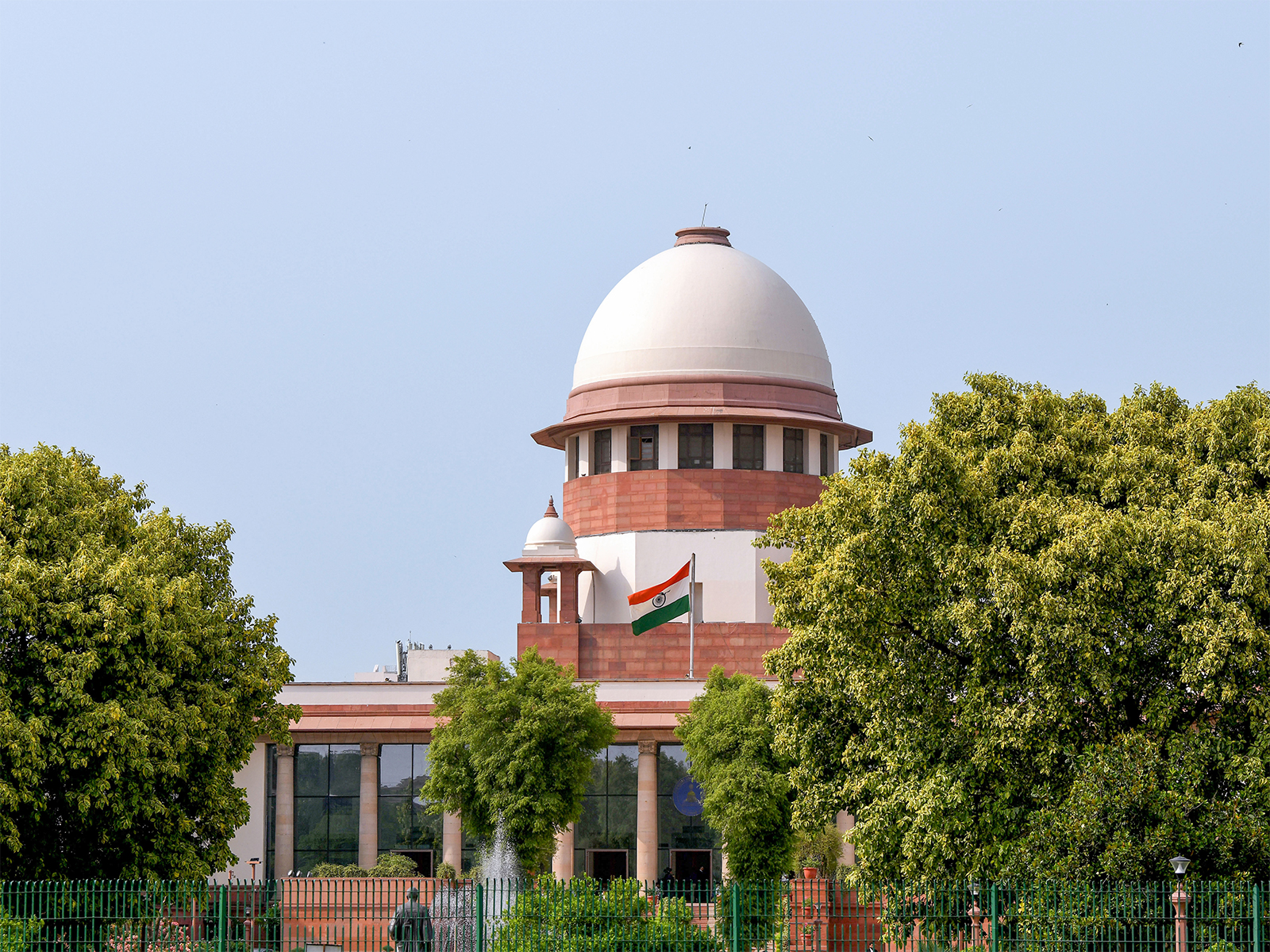SC says abolition of Waqf-by-user not prima facie arbitrary
The Supreme Court on Monday refused to stay the provision in the Waqf Amendment Act 2025, which abolished the concept of 'Waqf-by-user', and said prima facie deletion of the provision in the amendment "cannot be said to be arbitrary."

- Country:
- India
The Supreme Court on Monday refused to stay the provision in the Waqf Amendment Act 2025, which abolished the concept of 'Waqf-by-user', and said prima facie deletion of the provision in the amendment "cannot be said to be arbitrary." "If the legislature, in 2025, finds that on account of the concept of Waqf-by-User, huge government properties have been encroached upon and to stop the said menace, it takes steps for deletion of the said provision, the said amendment, prima facie, cannot be said to be arbitrary," it said.
Waqf-by-user is a concept that recognises a property as Waqf not through a formal dedication deed but through long, consistent public use of the property for a religious or pious purpose. By the 2025 amendment, the government had deleted Section 3(r)(i) of the original Waqf Act of 1995, which had recognised the concept of Waqf-by-user. The petitioners, while challenging the amendment, argued that the deletion of the Waqf-by-user provision would prejudicially affect several age-old Waqf properties, which do not have any formal deed of registration.
A bench Chief Justice of India BR Gavai and Justice AG Masih, however, said that right from the Waqf Act of 1923, there was a requirement of registration of Waqfs, so if the Waqfs were not registered for 102 years, they cannot raise any grievance now. "We are, therefore, of the view that if Mutawallis for a period of 102 years could not get the Waqf registered, as required under the earlier provisions, they cannot claim that they be allowed to continue with the Waqf even if they are not registered," the 128-page order stated.
"We are, therefore, of the view that if for 30 long years, the Mutawallis had chosen not to make an application for registration, they cannot be heard to say that the provision which now requires the application to be accompanied by a copy of the Waqf deed is arbitrary. Further, if the legislature, on noticing misuse of the Waqf properties, finds that after the enactment of the impugned Act all such applications should be accompanied by a copy of the Waqf deed, the same cannot be said to be arbitrary," it added. It refused to stay the provision which required all Waqfs to be registered under Section 36 of the Amendment Act, considering that such a registration requirement was there in earlier laws.
The bench also took note of the case where the Andhra Pradesh government had to approach the court after the State Waqf Board notified government lands as Waqfs. The apex court later quashed the Waqf's notification. "After noticing such instances of misuse, if the legislature finds that the concept of "Waqf by User" has to be abolished and that too prospectively, in our view, the same cannot prima facie be said to be arbitrary," it said.
The top court further stated, "In any case, as submitted by the Solicitor General, the deletion of clause (i) of Section 3(r) of the Original Waqf Act would come into effect from the date on which the impugned Act has come into effect. The said provision would, therefore, not apply retrospectively. Therefore, the contention of the petitioners that the lands vested in the Waqfs would be grabbed by the government prima facie holds no water." The top court further refused to stay Section 3d of the Waqf Amendment Act, which lays down that Waqfs created on properties that were notified as ancient monuments under the Ancient Monuments Preservation Act, 1904 or the Ancient Monuments and Archaeological Sites and Remains Act, 1958, would be void.
The bench refused to stay the provision while observing that there is no violation of customary or religious rights in introducing such a restriction. It also declined to stay Section 3E of the amendment Act, which bars the declaration of tribal lands as Waqf, which was introduced with the object to safeguard the interests of one of the most marginalised and vulnerable sections of our country - the Scheduled Tribes.
The apex court today passed an interim order on pleas to stay the operation of the Waqf (Amendment) Act, 2025. While the bench stayed certain provisions, it declined to put on hold some provisions of the Act. (ANI)
(This story has not been edited by Devdiscourse staff and is auto-generated from a syndicated feed.)










